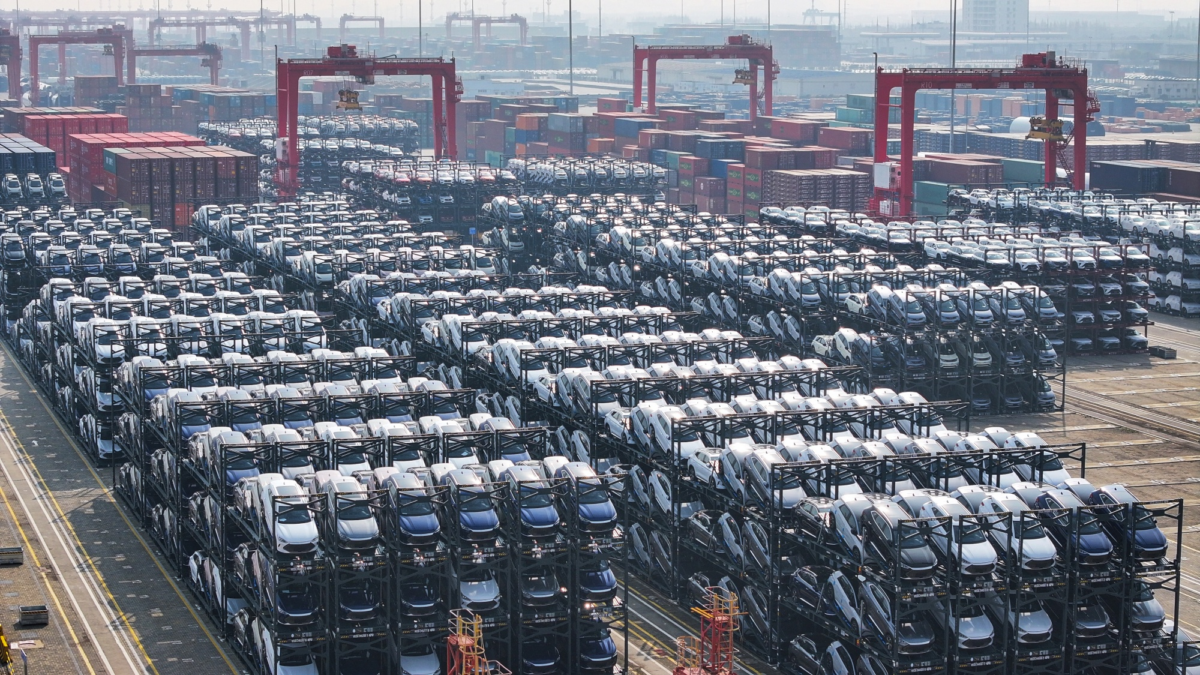Beijing has taken a major stance in response to the European Union’s recent decision to impose further tariffs on Chinese imports of electric vehicles (EVs). In the rapidly expanding electric vehicle sector, China is pushing the EU to change course and promote collaboration over conflict. The complexity of international trade and the changing dynamics of the global automotive sector have underscored this development.
EU’s New Trade Policy
The European Union has declared that imports of electric vehicles from China will be subject to tariffs of up to 38%. Due to the substantial government subsidies enjoyed by Chinese EV producers, concerns regarding unfair competition and market distortions have prompted this decision. The EU wants to provide European automakers, which are finding it difficult to compete with an influx of less expensive Chinese EVs, an even playing field.
This action is a component of a broader strategy to safeguard the European automobile sector and promote domestic electric vehicle manufacturing. As part of the Green Deal, the EU has been a vocal supporter of the shift to electric vehicles, with the goal of achieving carbon neutrality by 2050. The EU intends to protect jobs in the EV industry and encourage investment in domestic manufacture by enacting these tariffs.
Beijing’s Plea for Cooperation Over Conflict in EV Trade
China has urged European leaders to reconsider their strategy in reaction to the introduction of tariffs by the EU. Chinese officials contend that raising import taxes on electric vehicles is counterproductive and could jeopardize international efforts to tackle climate change. They push for more communication and collaboration to resolve trade disparities and encourage the expansion of the worldwide EV industry.
China’s Ministry of Commerce released a statement highlighting the need for cooperation over protectionism as the best course of action. The statement emphasized how open commerce in electric vehicles benefits both parties by advancing technology, lowering costs, and hastening the implementation of renewable energy solutions. Beijing is concerned that a tit-for-tat trade war sparked by the EU’s restrictive policies would not only be detrimental for both economies but also for the global EV industry.
Global EV Market Faces New Challenges Amid EU-China Tensions

The EU’s new tariffs on Chinese electric vehicles are expected to have a significant impact on the world market for EVs. One of the biggest markets for Chinese electric vehicle makers has been Europe, and the additional tariffs are likely to have an impact on market dynamics and supply chains. Chinese automakers could have to reevaluate their export plans and perhaps search for new markets in order to counteract the effects of the EU tariffs.
As a result of the greater costs associated with importing Chinese EVs, consumers in Europe could also feel the effects of these levies. This could run in contrast to the EU’s own environmental goals by slowing down the adoption rate of electric vehicles in Europe. However, the tariffs may give European EV producers a much-needed boost, as they have been finding it difficult to compete with their less expensive Chinese equivalents.
The EU and China’s disagreement over EV tariffs is a reflection of broader geopolitical and economic issues. Trade policies have developed into an essential mechanism for safeguarding home industries and accomplishing strategic goals as countries compete to establish their places in the developing green economy. These actions run the risk of intensifying trade conflicts and obstructing global collaboration on integral concerns like climate change.
Future of EU-China Trade Relations
It is unclear what the future holds for economic relations between the EU and China, especially with regard to the electric vehicle industry. EU tariffs aim to safeguard home industries, but they run the danger of strained relations with one of the bloc’s biggest trading partners. Finding a fair strategy that promotes competition and aids in the expansion of the worldwide EV market is in the best interests of both parties.
In order to ease these tensions, diplomacy will be essential. Persistent communication between the European Union and China may facilitate beneficial agreements that tackle apprehensions regarding market inefficiencies without requiring protectionist actions. Furthermore, cooperation on innovation and technology in the EV industry may make Chinese and European manufacturers more competitive, strengthening the global market.




1 Comment
Pingback: Chinese Companies Look to Malaysia to Dodge US Tariffs